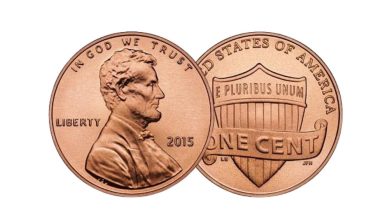
For many UK tech businesses, questions of succession and ownership are no longer just financial decisions. They are questions about culture, purpose and the long-term health of a company. Traditionally, founders faced two clear routes: sell to a trade buyer or take on external investors. But a growing number are choosing a different model – Employee Ownership Trusts (EOTs) – to secure the future of their business on their own terms.
Employee ownership appeals because it combines stability with shared reward. It protects the independence of a company, gives employees a meaningful voice, and ensures that the values that shaped its success are not lost in the pursuit of short-term gain. For tech businesses, which rely so heavily on their people, their culture and their ability to innovate, these benefits are increasingly hard to ignore.
A long-term approach in a short-term world
The tech sector moves fast. New tools, new frameworks and new trends appear almost daily, and it can be tempting for companies to jump on the latest technology simply because it’s fashionable. But the danger is losing sight of what customers actually need.
External investment can sometimes amplify this pressure. Investors often expect quick returns, which can push businesses to prioritise growth at all costs rather than building sustainable solutions. The EOT model offers an alternative. By shifting ownership to a trust, decisions stay close to the people who know the company best. There is no outside pressure to chase quarterly targets or fit an investor’s exit plan.
That stability allows a business to evolve more deliberately, refining its products, strengthening customer relationships and building a team that truly understands the work. For founders who take a long-term view, employee ownership aligns far better with the culture they want to preserve.
Why culture matters more in tech
Unlike many sectors, technology isn’t just about physical products or assets. It’s about knowledge, creativity and collaboration. The most valuable part of a software business is often the people who build and support it.
Traditional share schemes or bonus structures tend to reward only a small number of employees, usually those in senior positions. But in reality, innovation can come from anywhere. A small tweak from a developer, an insight from a support team member, or an idea from an implementation consultant can make a huge difference to the customer experience.
An EOT broadens that reward. Every member of the team benefits equally when the company performs well. That shared stake creates a stronger sense of connection and accountability, which in turn leads to higher engagement and lower turnover.
Independent studies find employee-owned businesses 8% – 12% more productive and 50% more likely to reinvest in R&D than conventional peers. For tech businesses competing in a tight talent market, that cultural advantage can be as valuable as the financial one.
Preserving what makes a business unique
Most founders don’t start a company simply to sell it. They start with a clear purpose – usually to solve a problem they care about – and want that purpose to endure beyond their own tenure.
Employee ownership helps embed those founding values into the structure of the business. Trustees are legally required to act in the best interests of employees, which keeps decisions aligned with the people who deliver the work and the customers they support.
It also helps preserve the know-how and relationships that make a smaller tech business distinct. When employees have a meaningful stake, they are more likely to stay, ensuring continuity for clients and safeguarding the culture that made the company successful in the first place.
For customers, that means the team they know and trust doesn’t disappear after an ownership change. For employees, it reinforces that their work is valued and their future matters.
Growing interest beyond the UK
While the UK was an early mover in encouraging employee ownership, it’s not alone. Canada has introduced a similar model, offering a capital gains exemption on qualifying sales to employee ownership trusts. Australia and New Zealand are actively debating reforms, while several European countries are exploring variations of their own.
For globally connected tech businesses, these developments matter. Supply chains, partnerships and client expectations increasingly favour companies whose governance models reflect shared ownership and long-term thinking. What started as a UK experiment is now becoming an international trend.
For founders, this growing recognition provides additional reassurance that employee ownership isn’t niche or risky. It’s a proven model that’s gaining momentum well beyond one market.
A model built for resilience
Employee ownership will not be the right choice for every company. Some businesses will still benefit from external investment and the scale it brings. But for those looking to build resilience and retain their independence, it offers a pragmatic alternative.
It turns succession from a one-off transaction into a long-term commitment – to employees, to customers, and to the original values of the business. For many in the tech sector, that shift reflects a growing desire to prioritise people and purpose as much as profit.
EOTs are not about looking back. They are about creating the conditions for a business to move forward without losing sight of why it was founded. For companies that value independence, culture and long-term thinking, they provide a clear way to protect what matters most.





